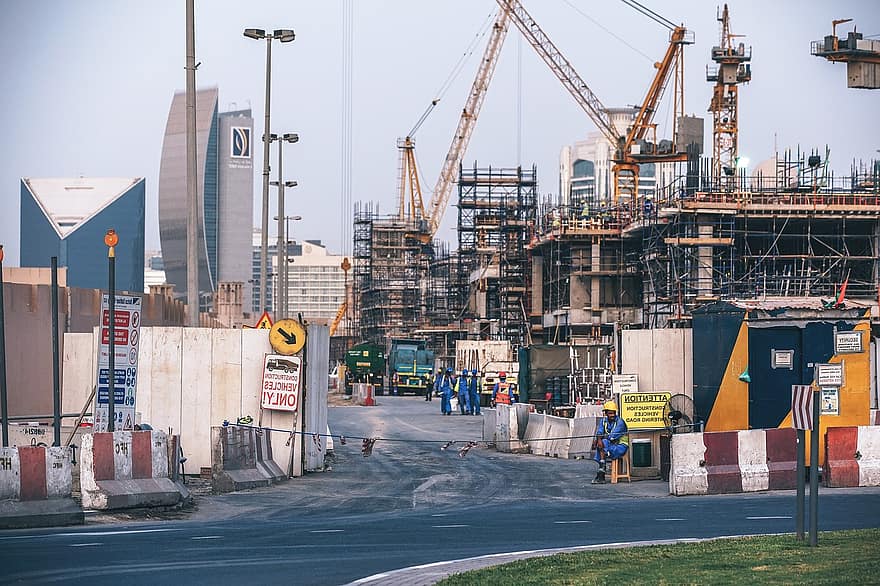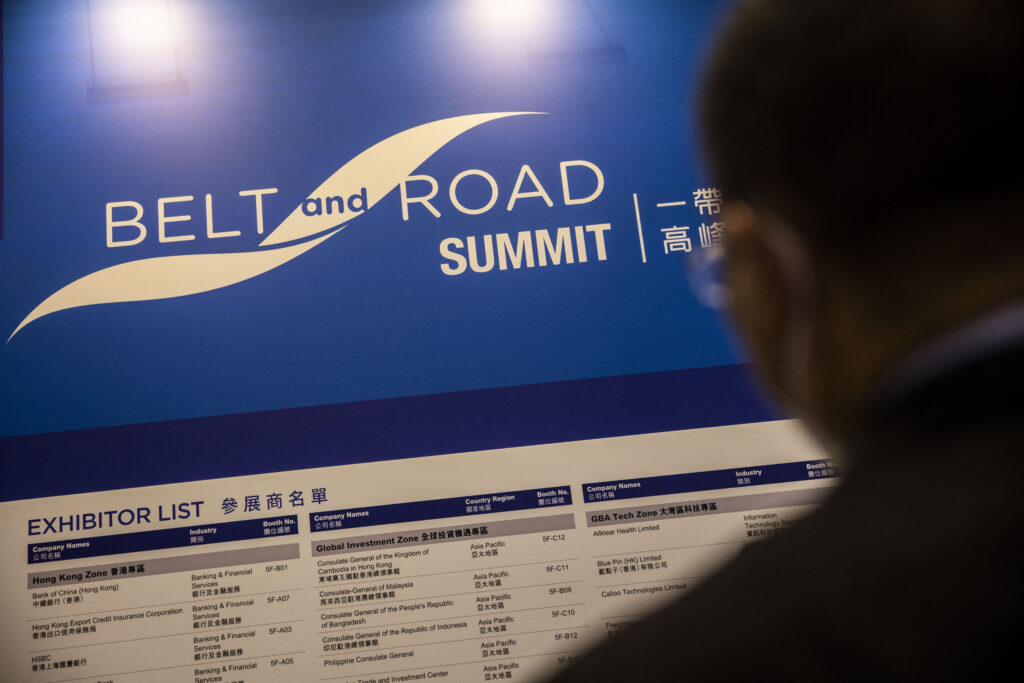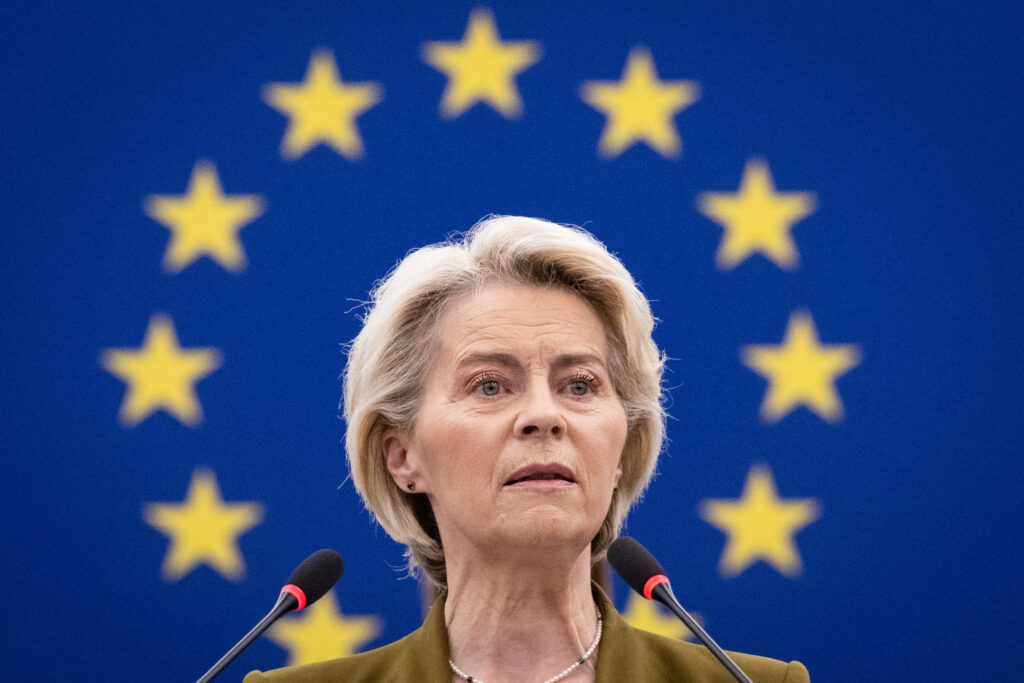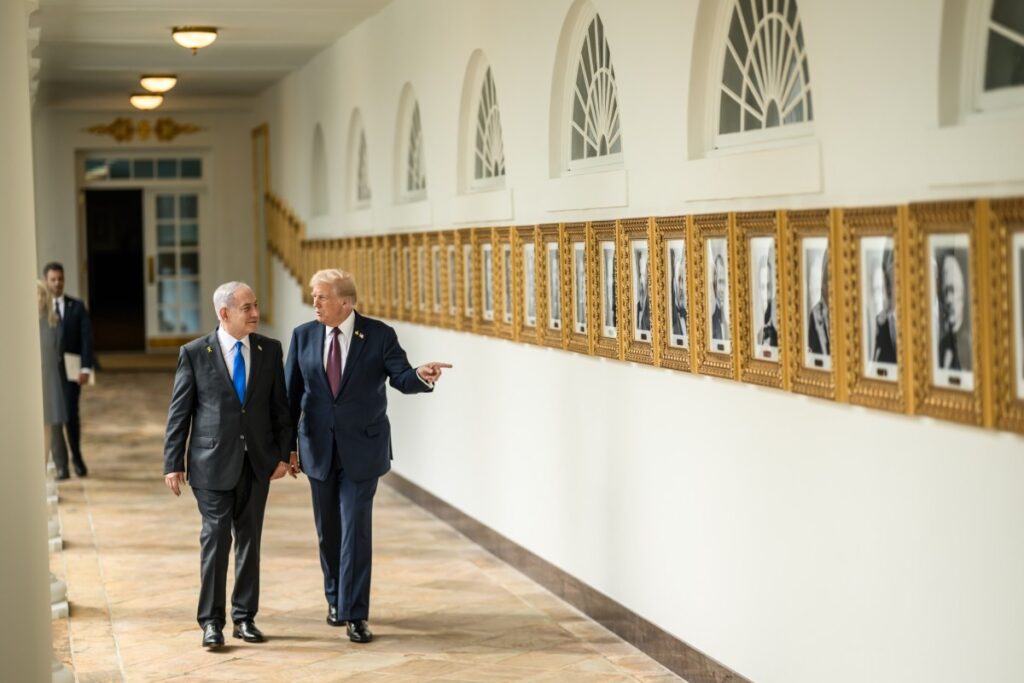In the past few years, many things have changed in the Gulf region. Oil prices have collapsed since mid-2014, the United States has redefined its policy towards the region and Turkey is emerging as the dominant power in the Middle East. Against this background, the aim of the UAE series of papers is to provide a comprehensive, interdisciplinary understanding of how the country is responding and adapting to the new reality. The papers cover different aspects of the UAE such as the economy, demographics, society, technology, foreign policy and security.
Among the Gulf Cooperation Council members, the United Arab Emirates has been particularly proactive in carrying out economic policy adjustment and reforms over the past few years. The regional economic outlook has deteriorated since mid-2014, when oil prices collapsed, and the country today faces new challenges arising from the global coronavirus pandemic. This paper explores the reforms undertaken by the UAE to support the economy and develop new sectors.
CLICK HERE FOR THE PDF.
By Monica Malik and Thirumalai Nagesh
Introduction
Even before the economic stresses arising from the onset of the Covid-19 pandemic, the economy of the United Arab Emirates (UAE) had been affected by several developments — the collapse of oil prices towards the end of 2014; the contraction in regional demand as lower oil prices forced the other Gulf Cooperation Council (GCC) countries to cut spending and introduce fiscal reform measures (largely between 2015 and early 2018); and increased regional competition, including in areas such as transportation, logistics and finance. Other challenges are the weakening global demand since 2018 and a strong US. The open and externally oriented nature of the UAE economy, notably its oil sector and its position as a trade and services hub, makes it susceptible to these rising risks.
The UAE government’s policy focus until 2018 was on fiscal consolidation and adjustment to the weaker oil price outlook. The measures it undertook included retrenchment in government spending and consolidation of government-related entities, alongside a number of fiscal reforms. Subsidies on utilities were lowered significantly (particularly in Abu Dhabi) and fuel prices were liberalised in August 2015. Measures were also introduced to deepen non-hydrocarbon government revenues, such as the introduction in October 2017 of an excise tax on unhealthy goods, eg tobacco products, energy drinks and carbonated drinks, and a 5 per cent value-added tax (VAT) in January 2018.ven before the economic stresses arising from the onset of the Covid-19 pandemic, the economy of the United Arab Emirates (UAE) had been affected by several developments — the collapse of oil prices towards the end of 2014; the contraction in regional demand as lower oil prices forced the other Gulf Cooperation Council (GCC) countries to cut spending and introduce fiscal reform measures (largely between 2015 and early 2018); and increased regional competition, including in areas such as transportation, logistics and finance. Other challenges are the weakening global demand since 2018 and a strong US. The open and externally oriented nature of the UAE economy, notably its oil sector and its position as a trade and services hub, makes it susceptible to these rising risks.
However, since 2018, the UAE’s economic policy has largely focused on supporting economic activity, including developing new industries and reducing pressure on corporates. The fiscal reforms had been vital to boosting longer-term fiscal resilience and adjusting to the lower medium-term oil price outlook, but they placed downward pressure on domestic demand. The reforms (such as the introduction of VAT) and labour market uncertainties had thus resulted in soft household consumption and confidence.
Corporates in the UAE have been reducing prices to support external and domestic demand; this in turn has placed downward pressure on margins and resulted in a focus on lowering costs, including labour, which adds to the softness in the labour market. The reduction of prices by corporates to boost their competitiveness is a central adjustment process under the pegged currency regime.
Support Measures to Spur Economic Growth
The government’s proactive stance towards supporting growth is reflected in a number of economic packages and structural reforms announced since mid-2018. The measures have been undertaken at both the federal and emirate levels and are broad-based and diverse in nature. They include policies to reduce short-term pressure on corporates and individuals, alongside initiatives to improve the business environment and raise investment levels (domestic and international). These initiatives aim to revive economic activity, attract skilled labour, develop new industries and raise the economy’s growth potential.
The government has also moved to loosen aspects of fiscal policy, turning expansionary since 2018; no new meaningful fiscal reform measures have been introduced since the VAT. Over a two-year outlook period, we expect fiscal policy to remain accommodative, aimed at supporting and bolstering economic activity.
Government-related entities (GREs) have announced separate support initiatives. Notably, Abu Dhabi National Oil Company (ADNOC) has introduced the In-Country Value programme for its suppliers. This is a procurement-led initiative focused on local suppliers and the localisation of critical functionalities in the oil and gas industry. Moreover, the programme aims to support the economy through diversification, the building of additional industrial clusters and an Emiratisation programme, which includes developing the skills of nationals.
Abu Dhabi’s Ghadan 21 programme
In June 2018, Abu Dhabi announced a three-year package valued at AED 50 billion[1] to stimulate growth, known as Ghadan 21, which means “tomorrow” in Arabic. The programme is aimed at accelerating Abu Dhabi’s transition to a competitive and productive economy and has four pillars:
- (i) Measures to support private sector activity: including support to small and medium enterprises (SMEs);
- (ii) Knowledge-based economy: with the key themes of research and development, a technology hub, and attracting technology talent and companies;
- (iii) Education and employment: based around the themes of education and employment, social support, housing and communities, and civil society;
- (iv) Liveability initiatives: centred on themes that include mobility, nature, healthy and sustainable lifestyles, marketing, and smart cities.
Within these broad categories, the package aims to: (a) create 10,000 jobs for Emiratis in the private and public sectors; (b) improve the business environment; (c) support new industries; (d) develop SMEs; and (e) encourage tourism. For the nearer term, amnesties on overdue licence renewal fees and accelerated settlement of all delayed payments to private sector contractors have been announced.
Among the details of the package announced subsequently was the issuance of dual licences for companies in free-trade zones, which was aimed at supporting the business environment by enabling these corporates to work outside of these areas and participate in government tenders. In June 2019, Abu Dhabi announced further details of measures linked to Ghadan 2021, broadly centred around nine initiatives. These included: (a) government guarantees for SME loans; (b) instant business licences; (c) variable electricity tariffs for the industrial sector (with up to a 40% discount); and (d) support for ecotourism in the emirate. Following the outbreak of the global Covid-19 pandemic, further support measures were introduced under the Ghadan-21 programme (see box below).
Response to Covid-19
At the federal level, the UAE announced a number of support measures in March 2020 to counter the economic impact of the Covid-19 pandemic, which will be vital in reducing near-term pressures on corporates and households. The Central Bank of the UAE announced a targeted economic support scheme to the tune of AED 100 billion to provide temporary relief for up to six months for corporates and individuals facing difficulties in meeting outstanding loans. The size of the package is meaningful, at 6.5 per cent of estimated 2019 GDP and 5.8 per cent of gross outstanding loans in January 2020. We believe the most significant measure is a central bank fund of AED 50 billion from which banks can access interest-free loans (collateralised). Also, AED 50 billion will also be freed up from banks’ capital buffers. A number of other support measures were announced, including lowering the capital requirements for SMEs by 15–25 per cent in order to increase lending to this sector. The Central Bank of the UAE announced a second support package in early April, which included a reduction in the reserve requirement for demand deposits to 7 per cent, from 14 per cent earlier (injecting approximately AED 61 billion of system-wide liquidity), while an additional AED 95 billion of liquidity buffer relief was also announced. These measures are central to ensuring comfortable liquidity in the banking sector and lending to the UAE economy.
A number of larger corporates in Abu Dhabi and Dubai (property developers and banks) have announced relief packages to support their business partners and customers.
Abu Dhabi launched a new set of initiatives under its Ghadan 21 programme equivalent to around AED 9 billion. Some of the measures included AED 5 billion in water and electricity subsidies for citizens and the commercial and industrial sectors and AED 3 billion for an SME credit guarantee scheme.
Dubai announced an AED 1.5 billion stimulus package aimed at shielding the economy from Covid-19. The key measures will help to reduce costs for corporates and individuals for three months starting from March 2020. Water and electricity bills will be discounted by 10 per cent for residential, commercial, and industrial facilities. A number of the initiatives are targeted at sectors particularly affected by the crisis, such as retail, trade, tourism and energy. These include a 50 per cent reduction of municipality fees for hotels.
The measures announced at both the federal and emirate levels, such as reducing utility fees, have undone some of the earlier fiscal reforms. However, these are to counter the unprecedented impact of Covid-19 and could be temporary in nature.
Reduction in government fees
Meanwhile, in mid-2018, Dubai announced that it would waive or lower a number of government fees to support key sectors. Examples include the aviation industry, where the government waived fees in 19 areas, including airplane landing charges. Dubai’s Executive Council also approved plans to reduce Dubai municipality levies on businesses. Other measures included waiving the fine imposed by the Dubai Land Department for failure to register property within 60 days and freezing private school fees for the 2018–2019 academic year.
At the federal level, the Ministry of Economy announced new fee structures for some 110 government services in July 2019, with costs cancelled for 102 services and halved for the remaining eight. The amended fees constitute 47 per cent of the total fees levied by the ministry, according to Minister of Economy Sultan bin Saeed Al Mansouri. In October 2019, the minister said he expected more government entities to reduce federal fees.
A number of other GREs also have lowered their fees, such as Abu Dhabi Ports, which has waived charges beginning in August 2019 for over 75 per cent of services offered by the Khalifa Industrial Zone Abu Dhabi (Kizad).
Visa liberalisation
Residency visas for the UAE have been liberalised in stages since end-2018. These include the introduction of five- and 10-year investor visas, 10-year visas for skilled professionals, five-year visas for outstanding public and private school and university students, and retiree visas. These longer-term visas are intended to entice expatriates to save and invest in the UAE, especially in the development of new sectors aimed at helping to drive the next phase of economic growth, while also attracting the associated skilled labour.
Opening Sectors for Foreign Direct Investment
In July 2019, the UAE announced 13 sectors eligible for up to 100 per cent foreign ownership under a law ratified in November 2018. The broad categories under these sectors include 122 economic activities, such as renewable energy, space, agriculture, manufacturing, transport, logistics, hospitality, food services, and information and communications. Previously, foreign investors could hold only up to 49 per cent of shares in a company registered in the UAE, unless it was in a designated free-trade zone and Emirati investors held the remaining 51 per cent of the shares. This liberalisation could be particularly important in attracting new technology-heavy sectors, where protecting intellectual property might be a key factor. Each emirate will determine the maximum foreign ownership allowed within its jurisdiction, which could suggest liberalisation in a specific and targeted manner, at least in the near term.
The opening of these sectors highlights the importance the UAE attaches to foreign direct investment (FDI) for broadening its non-oil activity, strengthening its investment climate and boosting its competitiveness. It is especially the case, given that the UAE is looking to expand its production base through the transfer of technology, knowledge and training, which in turn should help to create employment in new sectors.
Time Required for Initiatives to Build Momentum
The impact of the initiatives outlined above has been relatively limited so far amid the ongoing domestic and external challenges, which are exacerbated by the global spread of Covid-19.
Over the past few years, investment in Dubai’s Expo 2020 has contributed to the UAE’s economy, but the length of Covid-19 persistence will now be critical for the country’s ability to host the event. Meanwhile, investment activity in Abu Dhabi increased from 2018 as the government looked to progress with its medium-term development objectives (both in the hydrocarbon and non-hydrocarbon sectors). Following the outbreak of the Covid-19 crisis, Abu Dhabi indicated that it plans to continue with its approved capital expenditure and development projects. Abu Dhabi’s strong foreign exchange reserves position and low level of debt provide ample space to progress with its projects, even with the expected fall in government revenue and widening of the fiscal deficit. Some of this investment will be undertaken by GREs and thus not reflected in direct government expenditure, for example, awards related to Etihad Rail and the national housing programme, as well as new hydrocarbon projects awarded by ADNOC in the first quarter of 2020. However, there are risks to the implementation of ongoing and newly awarded projects from global supply-chain disruptions and the inability to access additional labour.
Given these ongoing challenges facing the economy (excluding the impact of Covid-19), we have always believed that government spending and support will provide the most immediate and direct impact on supporting domestic demand and non-oil economic activity. The reduction in the costs of government services and the payment of public sector arrears will provide some important liquidity and cash flow relief to companies while reducing some cost pressures, although this is unlikely to have a significant impact in terms of generating new demand at this point. As such, we believe these measures are unlikely to lead to a marked increase in private investment beyond that already planned, especially given expectations of oversupply in a number of areas such as real estate and hospitality. There are signs that companies are continuing to discount prices to bolster demand (domestic and external), alongside cost-cutting measures, in order to reduce the compression pressure on their margins. Measures such as the credit support facilities for SMEs could have limited and only short-term impact, given the weak demand backdrop.
Policies to strengthen the investment environment and boost competitiveness are promising but will probably take time to build momentum. Moreover, the visa reform is still narrow at this stage and is thus unlikely to result in a marked rise in population or demand for real estate. Nevertheless, these reforms highlight the government’s commitment to attracting new investment and developing new sectors. The broad-based measures to boost competitiveness, reduce costs and strengthen the ease of doing business will be vital to supporting economic activity (including capital inflows) once some of the headwinds subside. Furthermore, the high and advanced level of the UAE’s infrastructure and current moves by corporates to raise efficiency by lowering costs and enhancing productivity are positive trends. Deeper reforms and moves to raise total factor productivity growth will be central to achieving higher non-hydrocarbon growth over the medium term.
Developing New Sectors
Looking ahead, reforms to facilitate the development of new sectors and industries are particularly important, given the challenges facing the sectors that have driven growth over the past two decades. Two factors are central to this: (i) the oversupply seen in a number of key areas, which will require lower investment over the outlook period; and (ii) rising regional competition, including in areas such as transportation, logistics and retail, etc. The global economic slowdown, which has been increasingly evident in data since mid-2019, adds a further dimension. As such, the key sectors that have driven the economic and population growth of the last few years are not expected to provide the same degree of support in the future. These include the construction, real estate and service sectors. Notably, ongoing investment since 2015 despite the sharp fall in the oil price has meant that the UAE has not seen the same marked decline in project activity seen in the rest of the region. The investment activity has been led by Dubai and is partly linked to direct and indirect investment in Expo 2020. Many of these projects are being completed, and the focus is increasingly turning to managing the balance of supply and demand; this is especially the case for the real estate sector, but also in areas such as hospitality and infrastructure related to transportation and logistics.
The UAE is now especially focused on encouraging diversified and knowledge-based growth, including the development of new technology-related sectors and industries. Thus the 100 per cent ownership of companies and the visa reforms are important steps. Other policies are also being undertaken to encourage development in this area, in some cases associated with wider policy initiatives. In March 2019, Abu Dhabi launching its AED 1 billion “Hub71” initiative, aimed at bringing together start-ups, innovators and global powerhouses in the technology industry. Hub71 is a key initiative of the Ghadan 21 programme and will be undertaken in collaboration with organisations such as Mubadala, Microsoft, and SoftBank. As part of this initiative, Abu Dhabi announced that it will launch an AED 535 million fund to invest in start-ups at Hub71.
Meanwhile, Dubai also has a number of accelerator initiatives, including the Dubai Future Accelerators Program. The programme will bring together top international companies and entrepreneurs to address key areas of opportunity, such as artificial intelligence and robotics, genomics, 3D printing and biotechnology, as well as new business models. Dubai is also developing infrastructure to support developments in these areas such as AstroLabs, a co-working space and academy on a mission to build a thriving technology ecosystem in the Middle East and North African region.
About the Authors
Dr Monica Malik has over 25 years of experience as an economist specialising in the Middle East and North Africa (MENA) region. She is the chief economist at Abu Dhabi Commercial Bank (ADCB), where she established and manages the economics research team. Previously, Dr Malik was the chief economist at EFG Hermes and senior economist for the Middle East and North Africa region at Standard Chartered, Dubai, and at Dun & Bradstreet, London. Dr Malik holds a PhD from the University of Durham. She has authored a number of books and articles on economic development in the GCC, presented at a number of high-profile conferences, participated in policy roundtable discussions and appears regularly in the international media.
Mr Thirumalai Nagesh has been a member of the ADCB economics team for the last three years. Prior to joining ADCB, he worked within research teams at Royal Bank of Scotland (RBS) and Infosys in India. Mr Nagesh has some 10 years of experience in macro research, covering emerging market economies (India, GCC, Turkey) and oil.
Image caption: Construction site in Dubai. Photo: Shared via Pikist
Footnote
[1] As of 1 June 2018, 1 AED was approximately US$0.27.





